$500.00 – $849.00
- Iguana iguana
- Captive Bred Babies
- Approximately 13 Inches In Length From Head To Tail
- These Lemonade Yellow Lizards Exhibit Amazing Bright Yellow Coloration With Rich Lemon Lime Green Hues To Their Underbellies
- This Is An Herbivorous Reptile That Is Voraciously Eating Vegetables Such As Romaine Lettuce, Kale, And Carrots
SKU: N/A
Category: Iguanas for Sale
Albino Iguana for Sale: A Stunning Addition to Any Reptile Collection
The **Albino Iguana** is one of the most sought-after reptiles among exotic pet enthusiasts, and for good reason. With their striking appearance, unique color variations, and gentle temperament, these iguanas stand out as a truly remarkable species. If you’re looking for an **Albino Iguana for sale**, whether it’s a **crimson albino iguana** or even the rare and captivating **rainbow albino iguana**, you’ve come to the right place.
In this comprehensive guide, we’ll delve into everything you need to know about the albino iguana, including the different types, care requirements, potential size, temperament, and much more. By the end, you’ll have a full understanding of what it takes to own a stunning albino iguana, including what to expect if you decide to bring home a **full grown albino iguana**.
The Unique Appeal of Albino Iguanas
Albino iguanas are a rare and beautiful mutation of the green iguana, known for their lack of pigmentation. This gives them their signature pale white or yellowish hue, which can be enhanced by various genetic traits, leading to fascinating color variations like **crimson albino iguanas** and **rainbow albino iguanas**.
The albino mutation affects their melanin production, which is why they appear light in color. Some albino iguanas may have red or pink eyes due to the absence of pigment in the iris. Their unique appearance makes them highly coveted by reptile enthusiasts and collectors alike.
Where To Buy Albino Iguanas
1. **Specialized Reptile Breeders**: Look for breeders who focus on albino or exotic iguanas. These breeders can offer healthy and well-cared-for albino iguanas, and many will provide guidance on care and maintenance. You can often find breeders through online reptile forums or marketplaces.
2. **Reptile Shows and Expos**: Attending a reptile expo is a great way to meet breeders and see albino iguanas in person. You can ask questions, compare options, and ensure you’re buying from a reputable source.
3. **Online Exotic Pet Retailers**: Several reputable websites specialize in selling exotic reptiles, including albino iguanas. Some options include:
– **Underground Reptiles**: A well-known seller of exotic reptiles, including albino iguanas.
– **LLLReptile**: Offers a variety of reptiles, including different types of iguanas.
– **Backwater Reptiles**: Known for offering a range of reptiles, including rare iguanas like the albino variety.
4. **Local Pet Stores**: Some specialized exotic pet stores may have albino iguanas for sale or can help you source one from a trusted breeder.
Crimson Albino Iguana: A Rare Gem
Among the different variations of albino iguanas, the **crimson albino iguana** stands out for its incredible reddish hues. While most albino iguanas display light yellow or white skin, the crimson albino has deeper red tones along its scales, creating a striking contrast against its pale body. This combination makes it a showpiece reptile, adding a splash of vibrancy to any collection.
Crimson albino iguanas are the result of selective breeding, where specific traits are accentuated over generations to bring out these rare and vibrant colors. As with all albino iguanas, they require special care, including attention to UVB lighting, diet, and housing conditions, which we’ll explore in detail below.
Rainbow Albino Iguana: A Spectrum of Colors
Another fascinating variation is the **rainbow albino iguana**. As its name suggests, this type of iguana displays a breathtaking array of colors that can range from pastel pinks and yellows to soft greens and blues. The unique interplay of colors along their body creates a mesmerizing effect that gives them a “rainbow” appearance.
These iguanas are not only rare but also quite valuable, often fetching higher prices in the exotic pet market. Due to their specific genetic makeup, rainbow albino iguanas are usually more sensitive to light and environmental conditions, which means that potential owners must be prepared to meet their specialized care needs.
Full Grown Albino Iguana: What to Expect
When you think of an iguana, you likely envision a large, dragon-like lizard lounging in a sunbeam, and that’s exactly what you can expect from a **full grown albino iguana**. These reptiles can grow up to 6 to 7 feet in length, with some individuals even reaching up to 8 feet. Their long, muscular tails make up a significant portion of their total length, and they use them for balance and defense.
Owning a full grown albino iguana is a commitment, as these reptiles require plenty of space to roam and climb. A large, well-ventilated enclosure is essential, as is providing access to branches and platforms where the iguana can bask. These iguanas are arboreal by nature, meaning they prefer to climb and perch rather than stay on the ground.
If you’re considering purchasing a full grown albino iguana, it’s important to know that they require ample space, an appropriate diet, and regular care to thrive. Albino iguanas are herbivores, and a healthy diet consists primarily of leafy greens, vegetables, and occasional fruits. Proper hydration and UVB lighting are also critical for their overall health and well-being.
Housing and Enclosure Requirements for Albino Iguanas
Albino iguanas, like their green counterparts, need large enclosures with ample vertical space. For a baby or juvenile albino iguana, you can start with a smaller enclosure, but as they grow, you’ll need to upgrade their habitat to accommodate their size. Ideally, an enclosure for a full grown albino iguana should measure at least 8 feet long, 4 feet wide, and 6 feet tall.
The enclosure should include:
– **Branches and Perches**: Albino iguanas love to climb, so including sturdy branches, vines, or platforms is essential. These should be placed at varying heights to allow the iguana to choose different basking spots throughout the day.
– **UVB Lighting**: Like all iguanas, albino iguanas need UVB light to synthesize vitamin D3, which helps them absorb calcium and maintain strong bones. UVB light should be available for 10-12 hours a day. Since albino iguanas are more sensitive to light, choose a lower-intensity UVB bulb and provide shaded areas in the enclosure.
– **Basking Spot**: Provide a basking spot with a temperature of 90-95°F. The ambient temperature in the rest of the enclosure should range between 75-85°F. Nighttime temperatures can drop to 70-75°F.
– **Substrate**: The substrate can be something simple like reptile carpet, paper towels, or even a bioactive setup with soil and live plants. Just make sure it’s easy to clean and free from any sharp objects that could harm your albino iguana.
Diet and Nutrition for Albino Iguanas
Albino iguanas are herbivores, meaning their diet should consist entirely of plant matter. Feeding them a varied diet of fresh vegetables, leafy greens, and fruits will keep them healthy and provide them with the necessary nutrients.
Here’s a breakdown of what an ideal albino iguana diet looks like:
– **Leafy Greens**: Collard greens, mustard greens, turnip greens, and dandelion greens should make up the bulk of their diet. These are rich in calcium and other essential vitamins.
– **Vegetables**: Include squash, bell peppers, carrots, and green beans for added variety and nutrients.
– **Fruits**: While fruits should be offered sparingly, you can include items like strawberries, blueberries, and papaya for an occasional treat. Avoid citrus fruits, as they can upset their digestive system.
– **Supplements**: Dusting their food with calcium and multivitamin supplements (without D3 if they’re exposed to UVB light) will help maintain strong bones and prevent health issues like metabolic bone disease.
Temperament and Handling Albino Iguanas
Albino iguanas can make excellent pets, but they do require patience and regular handling to maintain a calm demeanor. Like all iguanas, albino iguanas are naturally defensive and can become stressed if handled improperly.
Start handling your iguana from a young age to get them accustomed to human interaction. Be gentle and consistent, and avoid grabbing them suddenly, as this can cause fear and lead to defensive behaviors like tail whipping or biting. With time and patience, albino iguanas can become calm and friendly pets that enjoy interacting with their owners.
Health Considerations for Albino Iguanas
As with all reptiles, it’s important to monitor the health of your albino iguana regularly. Watch out for common signs of illness, such as:
– **Lethargy**: If your iguana is less active than usual, it could be a sign of an underlying health issue.
– **Loss of Appetite**: A healthy iguana should have a strong appetite. If your albino iguana stops eating, it may be a sign of stress, illness, or improper habitat conditions.
– **Swollen Limbs or Joints**: This could be a sign of metabolic bone disease, which is caused by a lack of calcium or insufficient UVB exposure.
Regular check-ups with a reptile veterinarian are recommended to ensure your albino iguana stays healthy. Additionally, maintaining proper UVB lighting, temperature, and diet are critical for preventing common health issues.
Conclusion: Adding an Albino Iguana to Your Collection
If you’re looking to add a truly unique and stunning reptile to your collection, the albino iguana is an excellent choice. Whether you’re drawn to the vibrant **crimson albino iguana**, the rare **rainbow albino iguana**, or the impressive size of a **full grown albino iguana**, these reptiles are sure to captivate you with their beauty and presence.
Before purchasing an **Albino Iguana for sale**, ensure that you’re fully prepared to meet their care requirements. These fascinating creatures thrive in environments that replicate their natural habitat, with ample space, UVB lighting, proper nutrition, and regular interaction. With the right care, your albino iguana can live a long, healthy, and fulfilling life, making it a treasured addition to your family.
| sex | Female, Male |
|---|---|
| Purchase Option | 100% Payment, Reserve |
Be the first to review “Albino Iguana For Sale” Cancel reply
Related products
$150.00
Iguanas for Sale
$999.99

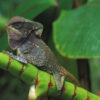


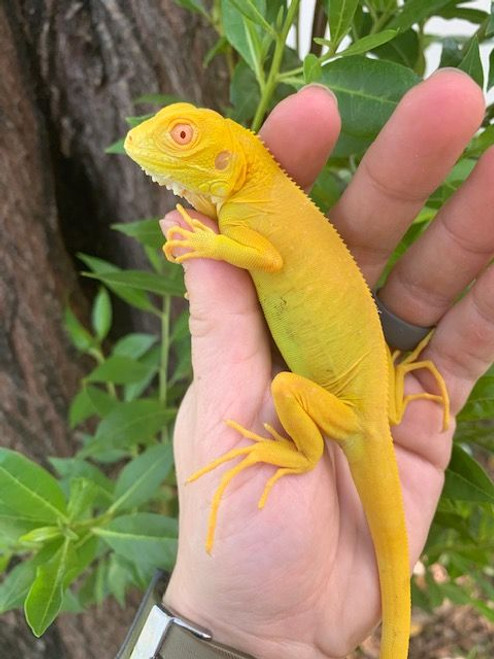


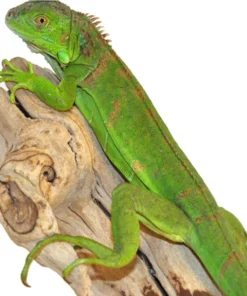
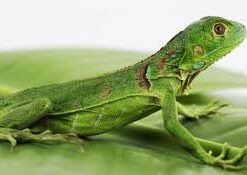
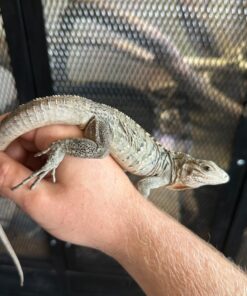
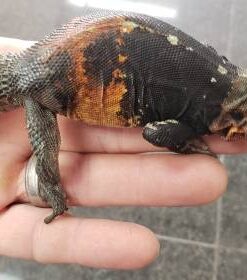
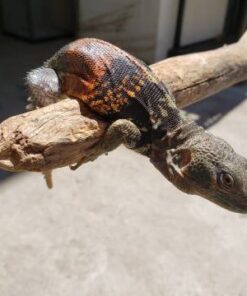
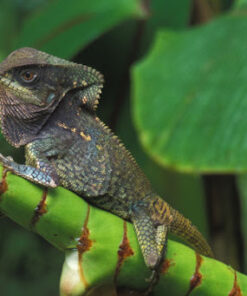
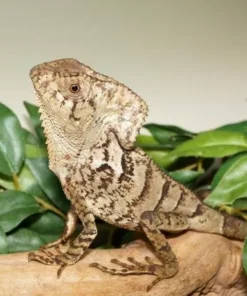
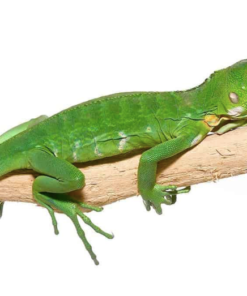
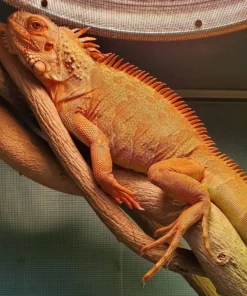
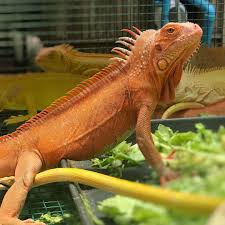
Reviews
There are no reviews yet.